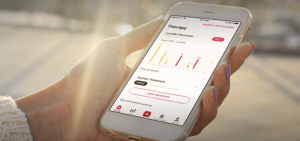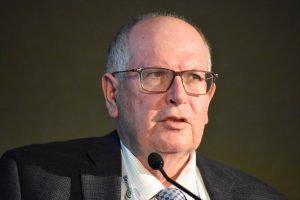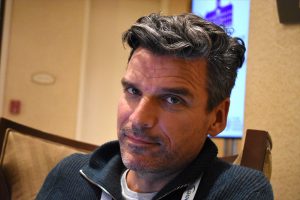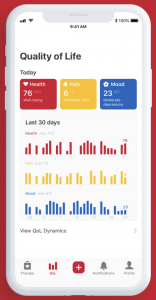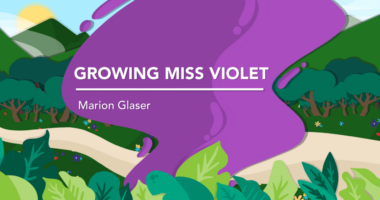Centogene Rolls Out Free Biomarker App for Gaucher Patients

Peter Bauer, chief scientific officer at Centogene. (Photo by Larry Luxner)
Germany’s Centogene is introducing a free smartphone app that lets people with Gaucher disease monitor their own progress. But an organization that represents Gaucher patients is concerned about what the company will do with the data it collects — and with whom it will be shared.
Peter Bauer, Centogene’s chief scientific officer, spoke with Gaucher Disease News during the Rare 2019 USA conference, held June 13-14 in East Brunswick, New Jersey.
The app, called MyLSD, is free, but patients must register online, and physicians must engage as well. It includes secure protected access to patients’ medical data.
Its development follows Centogene’s April 2018 identification of glucosylsphingosine (Lyso-Gb1) as the most effective response biomarker for monitoring the progress and improvement of Gaucher parameters once a patient has begun treatment with enzyme replacement therapy.
The study, “Glucosylsphingosine is a reliable response biomarker in Gaucher disease” — published in the American Journal of Hematology — was led by Ari Zimran, MD, who heads the Gaucher clinic at Israel’s Shaare Zedek Medical Center in Jerusalem.
“The idea is that patients get feedback on their biomarker levels and see how they develop over time,” Bauer said. “They can monitor their quality of life scores and pain scores, and can correlate that with the level of Lyso-Gb1. By doing so, they get an insight into their own perception and objective parameters.”
CentoCard is key to app’s success
MyLSD makes use of the company’s patented CentoCard, a bar-coded filtercard that allows patients to mail blood samples to Centogene in a simple envelope, without complicated packaging or customs declarations. Samples are are not sensitive over time or to temperature fluctuations, nor are they considered biohazards.
To date, the company has analyzed more than a million DNA samples from 115 countries for Gaucher disease and other genetic disorders; turnaround time is generally about 10 days.
“Centogene has changed the way patients with rare genetic diseases are screened,” Bauer said. “Our approach is to work with mass spectrometry-based biomarker screening, which is then confirmed by DNA sequencing. We analyze samples as dried blood spots on a filtercard. After it dries within 20 or 30 minutes, you can put it in an envelope and mail it from anywhere to our lab without losing quality.”
He said the app helps patients manage treatments via a daily calendar and reminders. It also enables easy sharing of quality-of-life information and results with physicians, and stores biomarker results over time.
“We have to show the usefulness for those who already have access to biomarkers, then we will spread this news that this is an integrated tool to have medical information and self-reported symptoms on one platform,” he said.
For now, only a few dozen patients have the app, though hundreds more are eligible because they receive Centogene’s biomarker results on a quarterly basis — and sometimes more often if they have changes in disease severity.
“It’s in the early phase because we have not yet promoted it outside a couple of observational studies,” Bauer said, adding that “for the moment, we’ve implemented this for Gaucher patients, but the format and approach is flexible to have modules for Fabry disease or any other cohorts.”
IGA raises privacy concerns
However, Centogene may have to update its privacy policy, following conversations with the International Gaucher Alliance (IGA).
Tanya Collin-Histed is CEO of the U.K.-based organization, whose 52 member affiliates represent about 95% of Gaucher patients worldwide. She said it’s “fantastic” that Centogene has identified Lyso-Gb1 and how different treatments affect this biomarker.
“From that point of view, I think it’s great, but we have concerns going forward about the security and awareness of the use of patient data,” said Collin-Histed, whose 24-year-old daughter, Madeline, was diagnosed with Gaucher type 3 shortly before her second birthday.
“What this app does is look at different types of therapies. It asks what therapy you’re on, what dose you’re taking. That information is very personal and could be valuable for third parties to get hold of in the future,” she said. “We want patients to be made aware of that, up front in very lay language, before they start using it and their data is shared.”
Added Vesna Aleksovska, a Gaucher patient advocate from North Macedonia: “I still haven’t downloaded the app, but since seeing the consent form, I’m not sure I want to share all my data — especially when I don’t know how and for what my information will be used in the future.”
